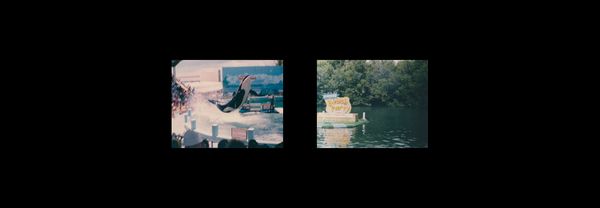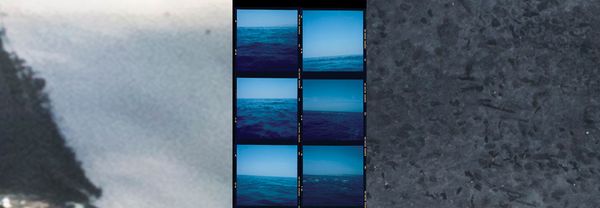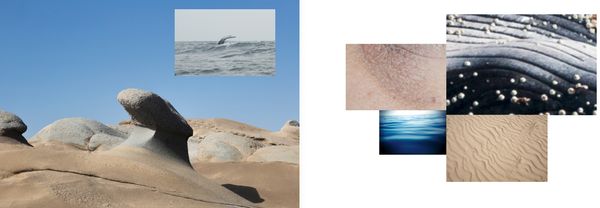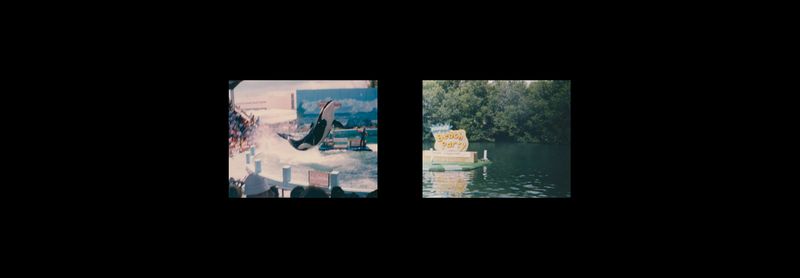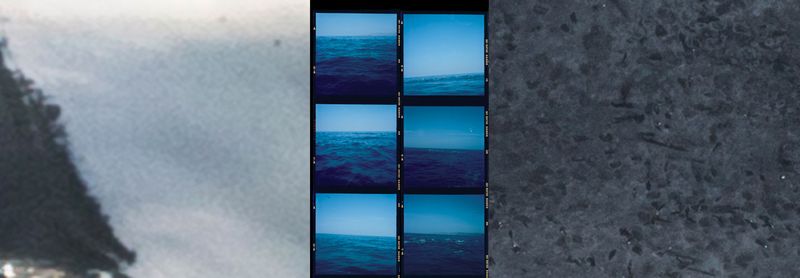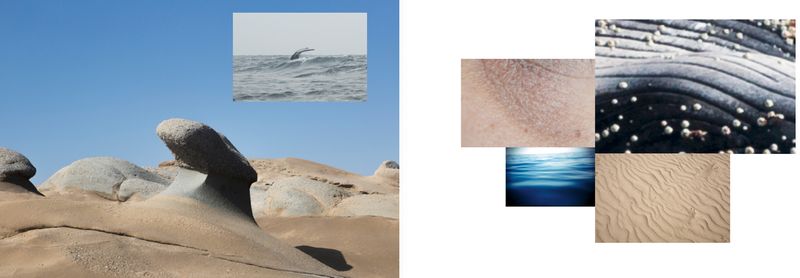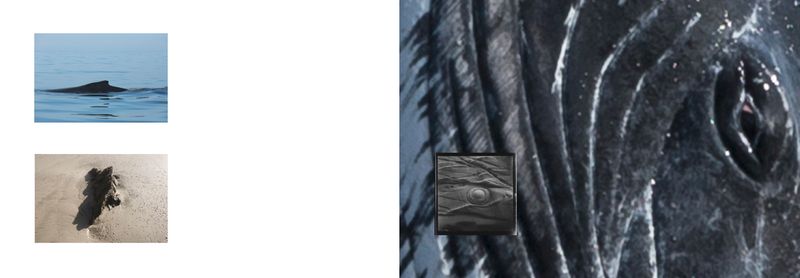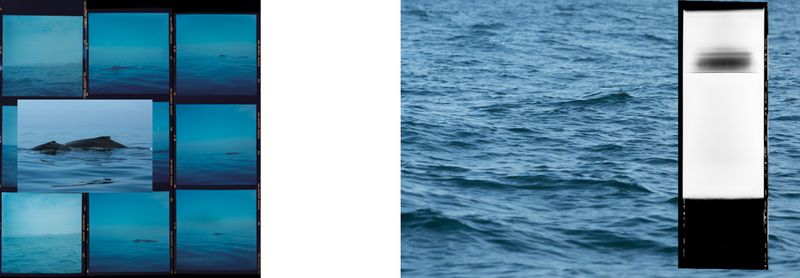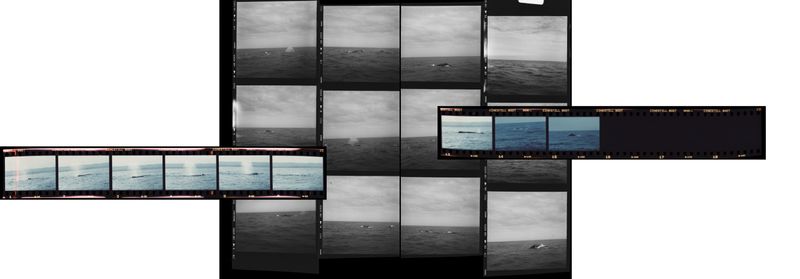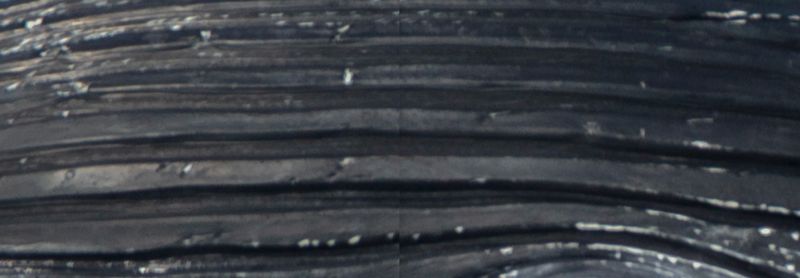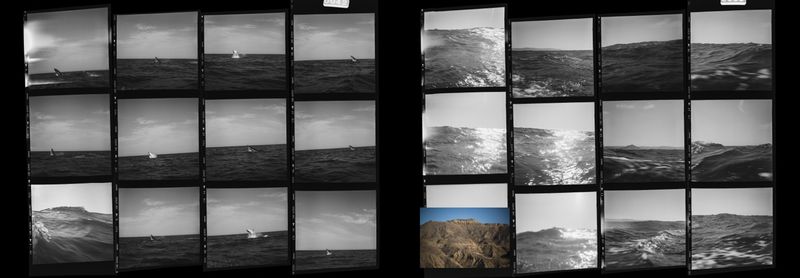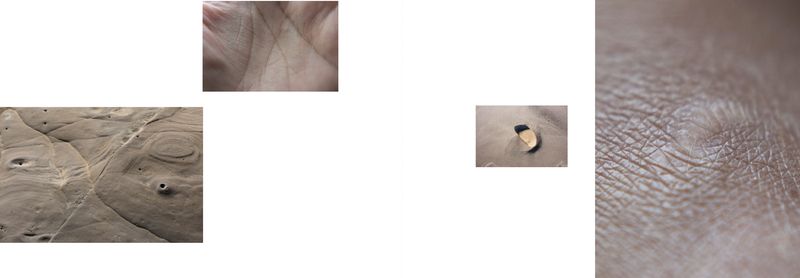Monocular
-
Dates2022 - 2017
-
Author
Video of photobook of two bodies: https://www.youtube.com/watch?v=yski0of2jWs&t=66s
When I was eight, my family and I went on vacation to the different theme parks in Orlando. Given my impression of this strange place, I remember feeling a great desire to take photographs for the first time. After days of convincing my father to let me take a photo with his compact camera, he agreed to give it to me for two photos. I remember seeing my dad pressing the camera shutter when the orca Lolita jumped over the water of the show pool at the Seaquarium. I knew my dad had captured the perfect whale jump without seeing the result. I was ready for my first photo; according to the agreement, I was given the camera for the dolphin show. I imagined my first photograph with the dolphins jumping out of the water, imitating my father's successful action, but the reality was different. The excitement of pressing the shutter won me over, and the photograph I took was taken before the show began, so the photo I took is of the dolphin pond without the presence of any animal, just the greenish and calm water, with a small water stage that says "Flipper's Beach Party." This is the story of my first photo. In my early adolescence, I began to feel a great connection with whales. This bond began through dreams and then matured and accompanied me throughout my life, thus becoming a topic of more severe interest fed by research from different fronts: science, history, mythology, etc. I find in the intrinsic evolutionary, morphological and ontological particularities of cetaceans, desires, expectations and internal projections.
The title of the project, Monocular, corresponds to the type of mink that whales have. Unlike species with binocular vision, cetaceans do not have frontal gaze; each eye looks to the opposite side, generating double and synchronous visibility. The photographic medium, which, like the whale's vision, also has a monocular perspective, serves as a channeler and, simultaneously, a catalyst.
Monocular is an artistic project that consists of a photobook of two bodies to allude to the possibility of containment and coexistence of two poles within the same container. The photobook can be read in three ways: The first is from the left side, where the images and the sequence between them represent the hemisphere of the brain and, therefore, the functions associated with this sector, such as logical thinking, linear temporality and information based on reality. The second way, from the right side, is where you will find an assembly between the photographs that symbolize the work of this hemisphere, such as abstract thinking, emotion, imagination, creativity, etc. Finally, the third way to explore the piece is to read both books at the same time, configuring a narrative that encompasses a single being with two opposite territories, which are joined by a border that, although it marks limits and generates contrasts, It also harmoniously unifies a single entity.
The work demonstrates certain similarities between artistic and scientific practices, including testing, observation, analysis, inquiry, reproducibility and refutability, and relevance of errors as part of the research process. In the specific case of Monocular, it is reflected in the study and observation of whales, which shows how there may be a balanced and nourished harmony between both disciplines since their primary purpose is to be able to understand the world through the senses and knowledge. On the other hand, it also allows us to demonstrate the "multifunctionality" of photography, depending on the intentions with which the image is created, the assembly between them, the support where they are captured and the medium in which they are developed. Monocular is a way to reconcile and contain the duality of the human character and the different elements that build identity through the link with nature.
